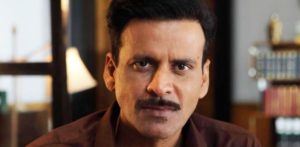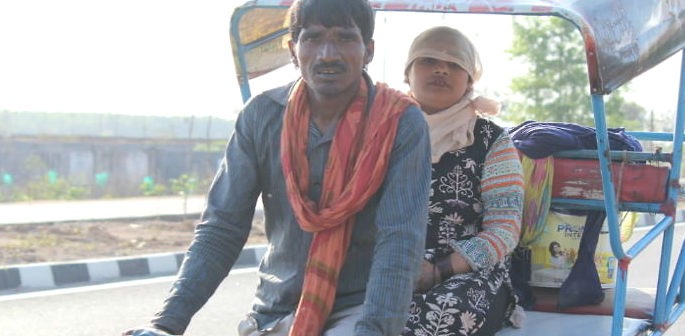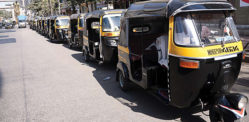However, like many others, their work soon dried up
With Coronavirus spreading at an alarming rate in India and the country trying to cope with the lockdown, the poorest workers like a rickshaw driver are suffering hugely.
So, the survival of such poor workers in India is going to be a very difficult and painful experience for them.
This story of Brij Kishore shows how with his work drying up due to the lockdown, he has been forced to ride more than 500 kilometres back to his village home.
However, this means his battle with debts as soon as he returns to his village and home is only going to start.
Brij Kishore is a rickshaw driver from Harpalpur in Madhya Pradesh and is one of the millions of citizens who have been hit hardest by the lockdown.
The lockdown has already negatively affected the less wealthy as a lack of people outdoors means less business.
Many are already struggling to make ends meet but the lockdown means that they are not making money at all. As a result, a lot of people have lost their jobs. Some have even lost their homes.
The government has a responsibility to protect the population’s wellbeing but their support is hardly going to reach this community.
Due to them losing their jobs, many citizens defied lockdown rules by travelling to their homes in rural areas.
Many of them walked for days, carrying their belongings as public transport was reserved only for essential services.
As a result, they risk contracting COVID-19 due to being in close proximity with many other citizens.
Among those who are struggling is Brij. He travelled on his rickshaw from Noida to Jhansi, driving approximately 550 kilometres.
His wife explained that the journey during the day was fine but at night, she was afraid.
Brij explained that he is originally from Harpalpur but ended up moving to Noida with his wife as his debts increased.
He and his wife managed to earn a living as Brij became a rickshaw driver while his wife Maya started sweeping houses.
However, like many others, their work soon dried up when India’s lockdown was implemented.
As many poor people are labourers, their work tends to have customers. But due to the lockdown, these potential customers have stopped venturing outside.
No one wanted a rickshaw journey while Maya also lost her job as the owner of the house where she worked feared that she may have Coronavirus.
Their landlord also told them to leave the apartment. This is something that many citizens have faced or will face during this difficult lockdown period.
Brij and Maya ended up leaving during the night. They travelled in the rickshaw for four consecutive days.
During their journey, some people gave them food and drink. Communities are taken such steps to help the vulnerable, however, the long queues remain a problem as it shows how many people are affected.
Maya explained that they will now be harassed by their moneylender as they have no way of paying him.
She highlighted that despite the government’s promise to help, there is a difference between saying it and reality. Maya admitted that it is not possible for them to help everyone.
The closure of state borders have disrupted the supply of essential goods, leading to inflation and fear of shortages, making it even more difficult for the poor to survive.
Thousands of homeless people require protection. Police actions to punish those violating lockdown orders have reportedly resulted in abuses against people in need.
Meenakshi Ganguly, South Asia director at Human Rights Watch said:
“The Indian government is facing an extraordinary challenge to protect over a billion densely packed people, but ramped-up efforts to prevent the spread of the coronavirus in India need to include rights protections.
“Authorities should recognise that malnourishment and untreated illness will exacerbate problems and should ensure that the most marginalised don’t bear an unfair burden from lack of essential supplies.”
On March 26, 2020, the government announced a relief package of $22.5 billion to provide free food and cash transfers to the vulnerable, and health insurance for healthcare workers.
While the government should ensure that those at heightened risk should be given priority, it is very difficult that they will be able to help everyone.
So for Brij, his wife and the millions of others, this will be a very difficult period for them and it will only get worse.





























































